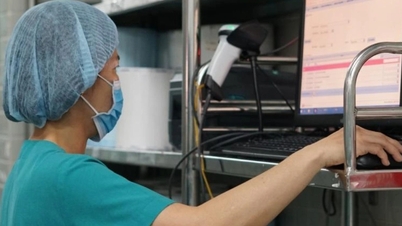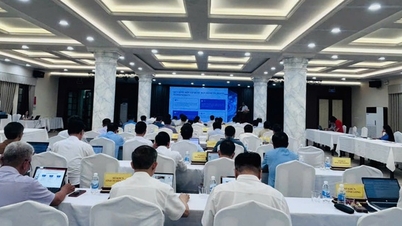Artificial intelligence (AI) is opening new doors for science , as a team of researchers from China and Australia has discovered more than 160,000 previously unknown RNA viruses.
 |
| AI helps detect more than 160,000 new viruses. Photo: University of Sydney |
The research, published in the journal Cell, is a collaboration between the University of Sydney (Australia), Alibaba Cloud Intelligence's Apsara Lab, and Sun Yat-sen University in Taiwan.
The team used a new machine learning tool, LucaProt, to detect 161,979 RNA viruses, the largest number ever recorded in a single study. Lead author Edward Holmes, a researcher at the University of Sydney's School of Health Sciences, said it was a significant step forward in expanding our understanding of the diversity of viruses in the environment.
"To discover such a large number of new viruses in one study is extraordinary," said Holmes. "This is just the beginning; there are millions of viruses yet to be discovered ."
To make these discoveries, LucaProt was developed to compute and analyze complex genetic information from viral genomes. This tool is capable of processing large amounts of genomic sequence data, helping to identify and classify new viruses that were previously unidentified.
Li Zhaorong, a co-author of the study from Alibaba Cloud Intelligence's Apsara Lab, stressed that the research has demonstrated that AI can perform biological discovery tasks efficiently, while opening up the potential to detect millions of new viruses.
The study not only documents the number of new viruses, but also their presence in diverse environments, from the atmosphere to hot springs to deep-ocean hydrothermal vents. These viruses not only survive in extreme environments, but may also play an important role in maintaining global ecosystems.
"We have discovered a hidden part of life on this planet. This is the first step to learn more about viruses in nature," said Professor Shi Mang from Sun Yat-sen University, one of the study's co-authors.
The team plans to continue improving LucaProt to identify even more viral diversity, and Holmes hopes that similar methods can be applied to exploring bacteria and parasites.
This research is a testament to the power of AI to advance science, offering a new look at the diversity of life on Earth.
Source: https://baodautu.vn/hon-160000-loai-virus-moi-duoc-phat-hien-boi-ai-d227199.html



![[Photo] Ready for the 2025 Fall Fair](https://vphoto.vietnam.vn/thumb/1200x675/vietnam/resource/IMAGE/2025/10/14/1760456672454_ndo_br_chi-9796-jpg.webp)











































































































Comment (0)